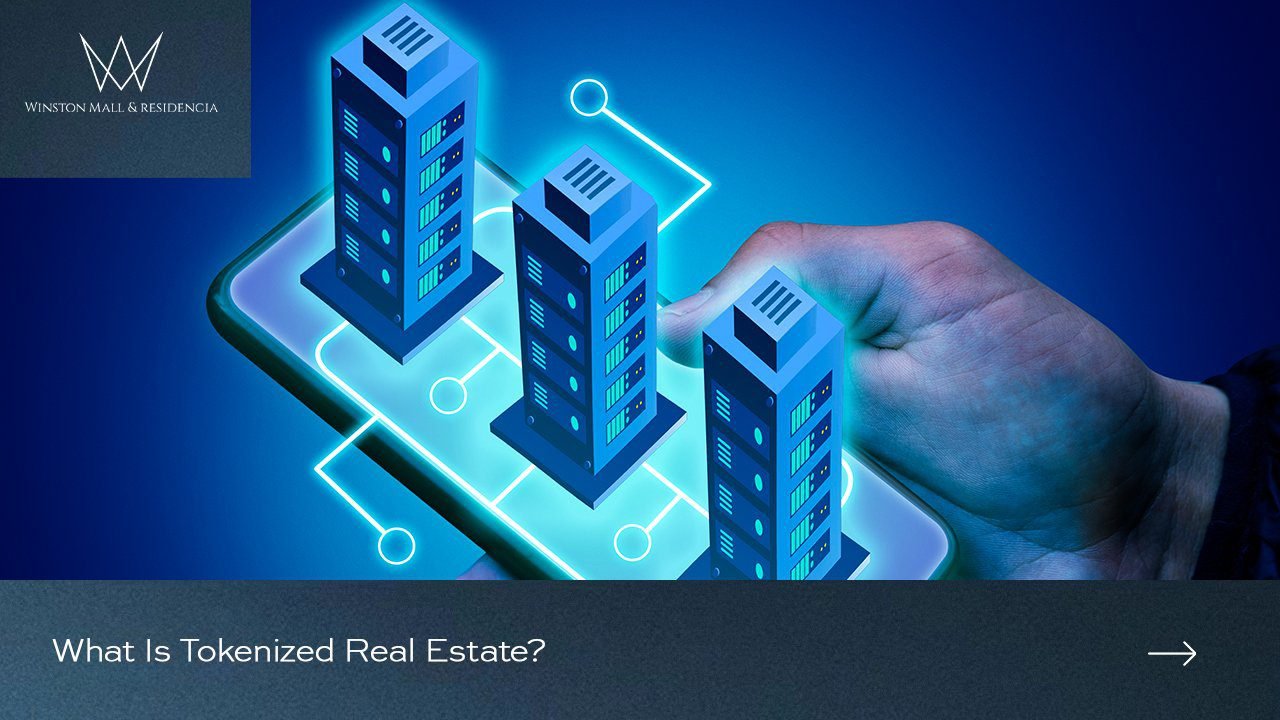The global real estate market, valued in the trillions, ranks among the largest asset classes globally and intrinsically is part of the lives of most people, whether as owners of the property, renters, or working in sectors such as office space, retail, or manufacturing. Real estate is perhaps known to be slow and cumbersome because of its heavy use of multiple intermediaries and the time required to complete transactions. These are the factors which make the market illiquid and inefficient. Still, tokenization is the next innovation for making transactions over real estate faster and very easy.
What is Tokenized Real Estate?
Tokenized real estate is the process by which a property asset or its cash flow is turned into blockchain-based tokens for enhancing liquidity, simplifying processes, and digital ownership. This method integrates traditional real estate with digital technologies, which may potentially change the investment landscape of properties in the future.
Application of Blockchain in Tokenized Real Estate
Blockchain technology is the foundation of tokenized real estate, whether in the form of non-fungible tokens (NFTs) or fungible tokens to represent properties or their earnings. NFTs are best suited for assigning digital ownership to individual properties or a collective set of properties through a single token. In contrast, fungible tokens are often used to divide property ownership into multiple parts, thus offering fractional investment opportunities.
Advantages of Tokenizing Real Estate
Industry experts say that tokenization has significant advantages, especially for owners of a single or small number of assets. It dramatically reduces the time and costs associated with selling fractional ownerships and allows for efficient secondary market trading. This technology lowers entry barriers and allows for wider participation by investors, providing a more structured and secured way for investing in property.
How Could Tokenized Real Estate Work?
Tokenized real estate necessitates a secure and reliable connection between the digital tokens and the physical properties they represent. A Web3 services platform, such as Chainlink, provides essential tools to developers and entrepreneurs for linking real-world assets with blockchains, ensuring accurate and trustable data flow.
This section discusses potential applications within both residential and commercial sectors, illustrating how properties could be tokenized, though these concepts have yet to be widely adopted or implemented at scale.
Simple Tokenized Real Estate
The basic form of tokenized real estate involves representing a property as an NFT. This unique digital token can hold significant data about the property and simplify the transfer of ownership—effectively reducing the transaction time from weeks to minutes in ideal scenarios.
Dynamic Tokenized Real Estate
Building on simple tokenization, dynamic NFTs can update their data automatically based on changes in property condition or ownership. These tokens can adapt over time, continually integrating new information, thereby providing a richer history and more detailed information to potential buyers.
Fractionalized Real Estate
Fractionalization represents another significant application of tokenized real estate, where fungible tokens represent shares of a property. This method democratizes property investment, allowing more participants to enter the market with smaller capital outlays. Companies like Blocksquare are pioneering this approach, developing platforms on blockchain technology to facilitate fractional ownership.
Tokenized Real Estate Cash Flows
Beyond property ownership, real estate’s economic outputs, like rental income, can also be tokenized. This separation allows property owners to liquidate future income streams while maintaining ownership. Using blockchain, these cash flows can be efficiently managed and directly transferred to token holders, enhancing liquidity and reducing transactional friction.
Tokenized Real Estate Baskets
Tokenization can also extend to portfolios or baskets of properties, bundling multiple assets into a single digital token. This approach can simplify management, improve cash flow processes, and enhance transparency in asset performance through blockchain technology.
Benefits of Tokenized Real Estate
Tokenization offers various advantages, including increased market liquidity, more accurate price discovery, lower transaction costs, and reduced potential for fraud. These benefits can make real estate investment more accessible and attractive, potentially transforming market dynamics.
Technical Challenges of Real-Estate Tokenization
Despite its potential, the widespread adoption of tokenized real estate faces several hurdles, including data authenticity, verification, wallet recovery, and scalability. Overcoming these challenges requires robust solutions and collaboration across various stakeholders, including technology providers, regulators, and the real estate industry.
Conclusion
While the tokenization of real estate holds promising potential for transforming the market through enhanced transparency and efficiency, significant development and cooperation are still necessary to realize its full benefits. The evolution of blockchain technology will likely play a crucial role in this transformative process.



